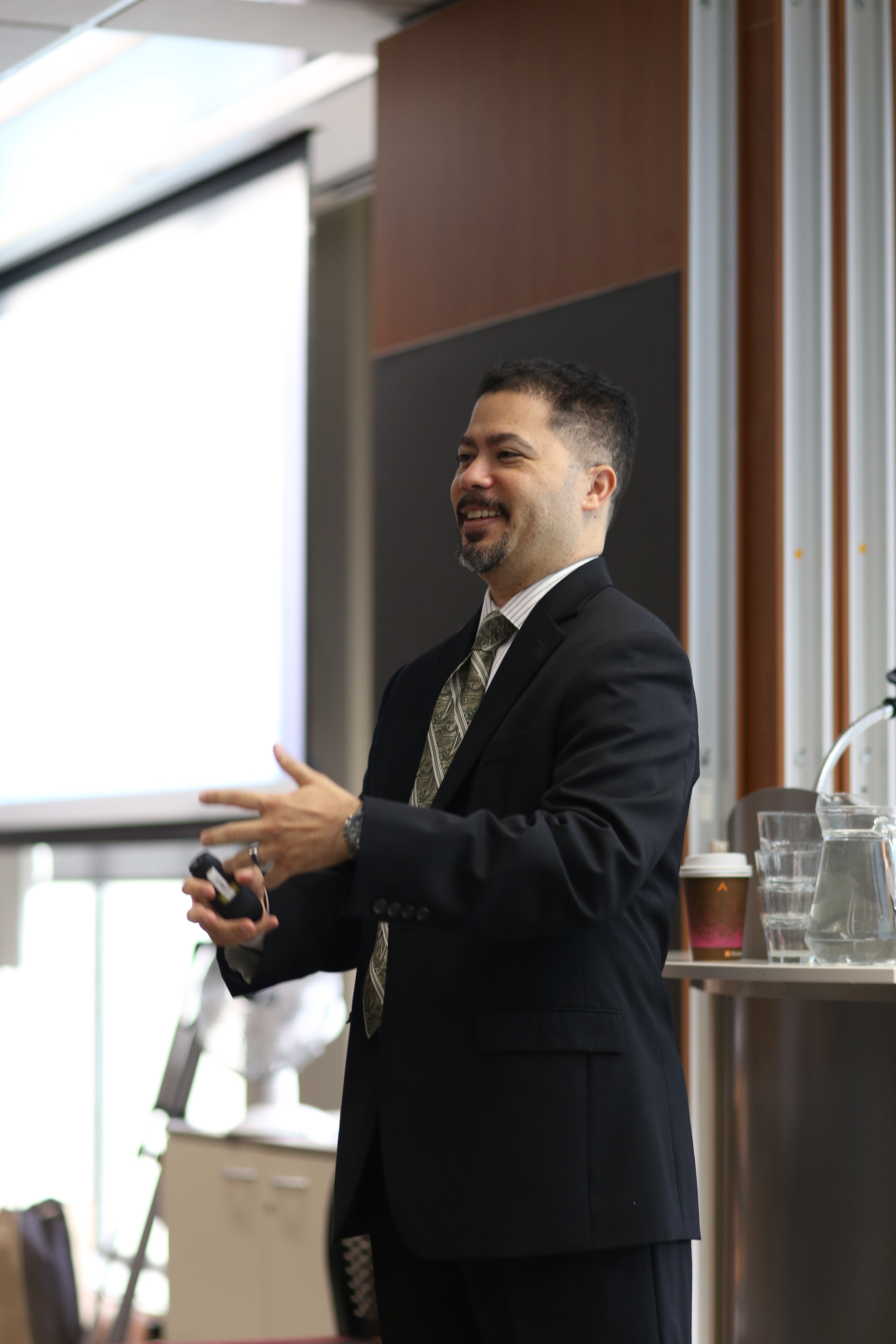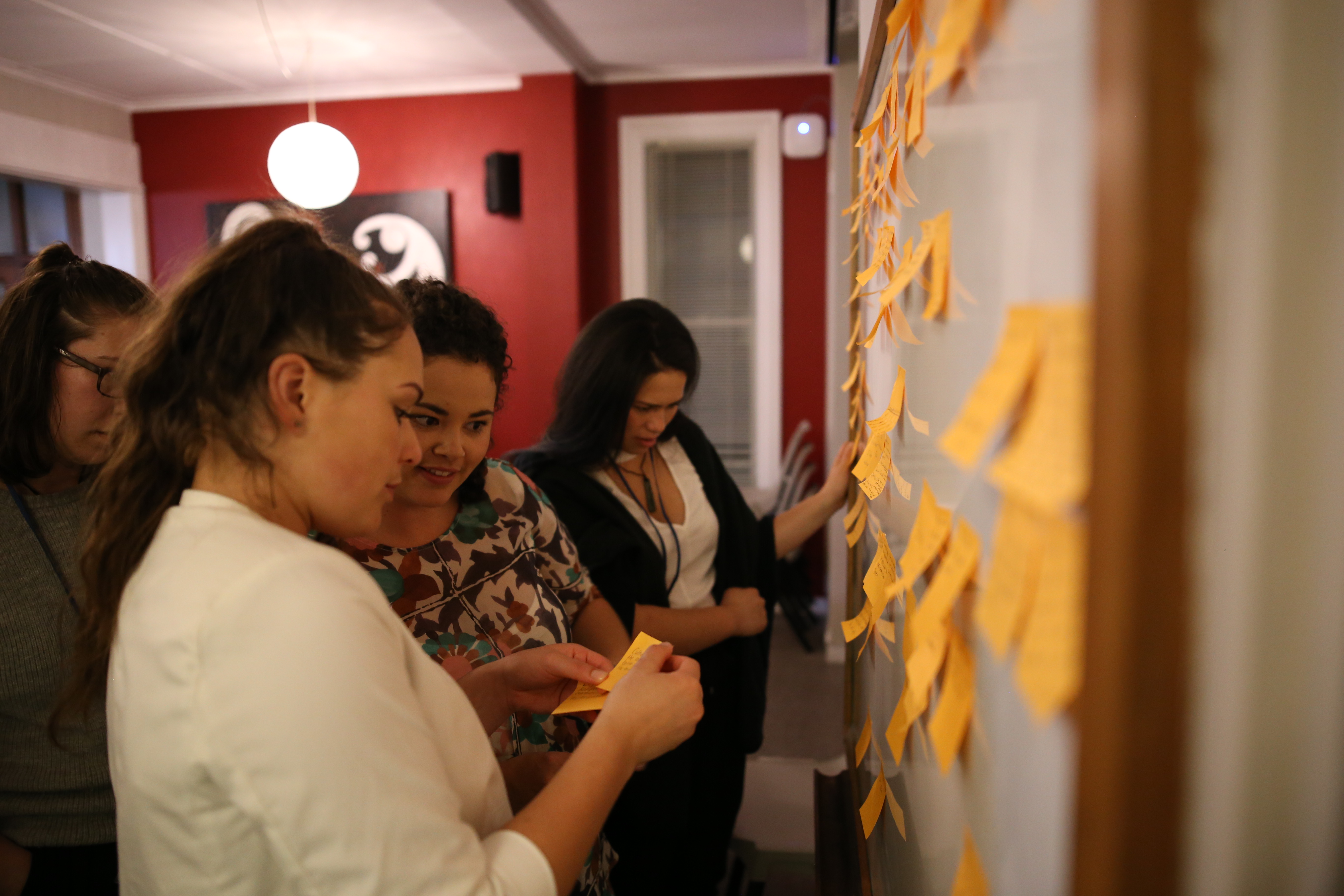
Dr Richard Lum
Day 2 of the workshop action opened with a crash course in foresight skills. It was led by Dr Richard Lum, an academically trained futurist from Hawai’i and author of 4 Steps to the Future, complimentary copies of which were provided to each of the participants. The session was intended to give participants the formal futures studies tools and terminology that they could then use to articulate their preferred post-Treaty settlement future and the strategic opportunities that would help them achieve that future. Dr Lum’s courses are usually at least two days but he managed to cram the essential content into this half-day session. Five worksheets from the book allowed participants to practice applying the concepts to a variety of issues such as te reo Māori revitalisation, the New Zealand constitution, Māori health (particularly Māori youth suicide), Māori justice, and high school education. McGuinness Institute staff were also fortunate to take part in the exercises. The worksheets from the exercises are available here.
After lunch participants headed up to the Treasury wharenui on level 14 to receive their certificates from the Chief Operating Officer of Treasury, Fiona Ross. This was also a chance for the group to have a Q&A with Fiona. After Fiona and other Treasury officials had left, participants remained in the wharenui for the continuation of their ‘visioning, strategy and implementation’ session. This session was a chance for them to go over the content they wanted to include in their presentation before the stress-testing panel in the second half of the afternoon. Tim Ng, Chris White, Ivan Kwok and Trevor Moeke joined participants as the stress-testers to give their feedback on the participants’ focus areas. The panel was lead by the participants themselves and followed an informal wananga format rather than Dr Lum’s lecture-style workshop.
When the day at Treasury was over, participants headed back to Te Herenga Waka Marae at Victoria University where the workshop had been opened. Hon Tracey Martin (MP), Jan Logie (MP), Fiona Ross, Kirikaiahi Mahutariki, Pat Snedden, Mark McGuinness and Julia Whaipooti joined them there for another informal discussion session, followed by dinner. Participants were numbered off to join one of three groups, each with two or three speakers. Speakers discussed their varying areas of expertise, offering practical advice and inspiration and answering specific questions from the participants in their group. Speakers were scattered among the participants for dinner, allowing for broader and deeper discussions. After dinner (and dessert), participants squeezed in another meeting about their presentation. During dinner they wrote down topics on post-it notes that they wanted to see covered in the presentation. They then grouped these into similar categories and selected the ones they felt most strongly that they wanted to speak about, ready for further development after a good sleep.

Kohe Ruwhiu and Kataraina Tims examine the post-it ideas

